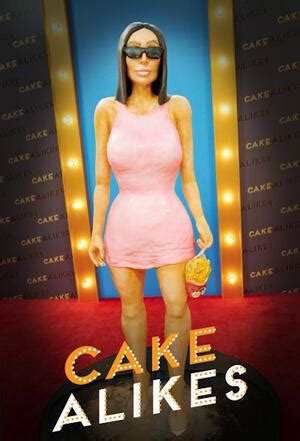I kind of work backwards while plotting. I have my major plot points that I map out when in the story I want them to happen. From there I break down how do my characters get from one point to another. I then break those actions down into what I want from each chapter then start writing dialogue from there. After I'm done with the dialogue, I write the details of the scenes.
Timelines and Tables??? My non-plotter brain cannot compute 
I have a few character sheets and world notes somewhere, but those came long after I had begun writing. This seems so much more detailed and organized.
I will say though, my folder files for my drafts are labeled, color coded, and neatly stored on my drive. 
Keep your math our of my writing!  (Jk, jk)
(Jk, jk)
I like the point that you brought up though. I'm not sure that with my writing style that I could effectively write a mystery or thriller. That's in part because I don't really consider the full story when I initially write one out. Hard to leave clues if you haven't decided who the murderer is yet.
Wow! It's like you put how my brain works into words. I'm definitely less plotter than  , but after I decided general plot points my process was exactly like this. Snippets of dialouge, random scenes. Sometimes I have a hard time writing in chronological order, which I think is why having multiple point of view characters really helps me. I stay with one character until their "story bit" is through and intersplice it with what's happening with another character.
, but after I decided general plot points my process was exactly like this. Snippets of dialouge, random scenes. Sometimes I have a hard time writing in chronological order, which I think is why having multiple point of view characters really helps me. I stay with one character until their "story bit" is through and intersplice it with what's happening with another character.
This basically summarizes my thoughts as well! I'm a plotter because I lack the skill and foresight, I guess, to generate convincing plot twists and revelations out of thin air. I've tried writing stories in a "pantsing" manner in the past, but it always just felt very bland because everything would just be event to event with not much in the way of surprises or interesting things happening xD
So in that way I also need to look at the equation holistically to work those things out ahead of time. Especially if it's a more complicated story with like B plots going on as well and like... yeah I just don't have it in me to do that on the fly 
For me, the way I plot is akin to how a cake artist would make a large specialty cake, like on Cakealikes.
I might start with bits of scenes or dialogue that I suddenly come up with, like how the baker might already have some simple sheet cake baked.
Then I build an overall outline, the support and structure to my whole story. It's like the support and metal/wood structure to a complicated cake.
Once I have the outline down with an idea of the story's beginning, middle, and ending, I then pad out this framework by writing in more scenes and dialogue, the actual story bits. This stage the bakers would be adding layers of more cake, rice cereal treat, ganache, modeling chocolate, so forth to fill in their structure and give the cake its actual form.
Then I will connect those scenes, pretty them up with edits, add more polish, and then hey! A finished story appears. Bakers will cover the cake in fondant, add in the details, touch up any areas, and then they have their finished cake!

I thought I was a pantser when I was younger, but seeing as the only two big projects I've ever finished were thoroughly plotted beforehand, that was inaccurate 
I'll plot out the story in a decent amount of detail before I start writing anything, as well as character descriptions and backstories. I'd say that 85% of the scenes in the final first draft were explicitly included in my outline. A few get cut, a few get added, and on my more recent project I actually added a whole little arc that wasn't planned. That outline had 60 bullet points, which turned out to be a good level of detail for me. Enough that I never got stuck, but little enough that I had room to discover the characters' emotions and such along the way, even though the events were figured out.
The key for me is to marathon the writing part. I can spend a couple days or a couple weeks on the outline, leave it for a few days and come back, whatever. But once I start writing, it's a marathon. I don't skip days. Together, plotting and marathonning work for me for two reasons:
1. Writer's block is mainly mitigated by having the outline. Even if I'm totally uninspired by a scene, I can at least grind out something really rough and come back to it later, then get on to more exciting things. If I don't have that outline already, I just... stop. And never come back. I get stuck on that moment and don't know what the more exciting things are that I'm working towards, so I just drop it entirely.
2. By writing a ton over a short span of time, I don't lose track of things. I remember what's happening, things that need to be worked in, etc. When I take breaks, even just a day or two, I start to lose the thread of the story in my head as well as the motivation to finish.
Before figuring this out, my longest project was an unfinished 26,600 word trying-to-be-a-novel that I worked on over three years. With the system above, I first wrote a 40,000 word novella in about three weeks (which I'm now posting on Tapas - Life in Polaroids), and more recently finished a 94,000 word novel in a month and a half (which, fun fact, is a very revamped version of the 26.6k piece mentioned earlier).
Both stages are very linear for me, especially with my most recent work. I started the outline with no idea how it would end, and I didn't know until I'd worked through almost the entire thing. I write from beginning to end, following that outline and adding as needed.
Plotter here. Definitely going to agree with what a lot of other people already said.
I usually start from a random scene and/or dialogue, then ask myself "okay, fine, but how did they end up here? What happens next?" and start building stuff from there. With The Emergency Coven, I didn't have to do a whole lot of work on characters themselves, as most of them were originally made for a RPG I used to play, so I was already familiar with the great majority of them. Still, some things needed to be changed, so I made sure to make a list of events I wanted to have in the story + a separate list of things that were going to be different from the RPG.
I also wrote down a timeline of all events in my story, starting from stuff that happened in the past and that will not make it into the comic, but is still necessary for me to understand relationships between characters and whatnot, and then going all the way down to the "current" events.
Bullet points are definitely useful! In this way, if I need to rearrange/add/remove chapters for whatever reason, I can easily do that by moving a single bullet point, instead of rewriting a summary or whatever. The outline doesn't have to be extremely detailed at first: I usually end up filling it as I progress, once I start realizing that I need more chapters and/or that some chapters are unnecessary. So far I have a very detailed list of events going up until the beginning of Vol. 3 and a rough outline of the rest. I know how my story is going to end and even what's going to happen in the next season, but my bullet lists are nowhere near as detailed as the ones I have for Vol. 1 and Vol. 2 (which are already scripted) :'D
I prefer having extensive lists of events (and sometimes even uber long meta essays about WHY certain things need to happen a certain way :'D) because it helps me remember things (the plot is LONG and involves a lot of characters, many of which are keeping secrets from each other, so it's key for me to remember who knows what exactly) and it also serves as an inspiration whenever I'm feeling stuck. I don't always write my chapters in a "chronological" order: sometimes I don't feel inspired to write a certain scene, so I'll take a look at my outline, be reminded about a certain episode and say "oh, yes, THIS! This episode is cool! I'm writing this right now!"  Knowing where my story is heading also gives me a sense of purpose: I tried pantsing stories in the past, but more often than not... it just wouldn't work for me. If I don't have a plan and have no idea where the story is going, it more often than not simply means that I literally have no idea how to continue it and that I'm probably going to abandon it soon D:
Knowing where my story is heading also gives me a sense of purpose: I tried pantsing stories in the past, but more often than not... it just wouldn't work for me. If I don't have a plan and have no idea where the story is going, it more often than not simply means that I literally have no idea how to continue it and that I'm probably going to abandon it soon D:
I consider myself a plotter. Once I get an idea, I usually get the beginning down. Which is good. Then from there my head thinks of scenes.
However, I never usually have the ending down sadly. But if the idea stays in my head, I pull up my plotting tool of choice (scrivener) and start up my plotting. I start off with the original idea and then use the 'Snowflake' method to build up on that idea and also finally get some kind of actual plot going.
Once I get through steps 1 to 4 to really solidify my novel idea. Do I go into the characters? Not really, I rather get the plot down with major players, then plan out the scenes between each major plot point and then let the character's personality flow out a bit with the scenes.
So my characters are 'pantsed' a bit and running around in their underwear since they have been pantsed. So that's my process. If another scene idea comes up as I write, I include that into my original scene outline because I want to remember the point the new scene would enter into the overall story.
I feel like we need a different word for it. There are a number of writers like us here, and every time I bring up my writing method, someone will stick up their hand and go "OMG, THAT'S ME AS WELL!"
I call it the 'ADHD method', because unpredictable hyperfixation on different characters and events is definitely where it springs from for me, but that wouldn't be true for everyone who writes this way.
I always picture a patchwork quilt when I think about it.
You know my methods as a plotter, I make an outline based on my plot summary then forget half of what I wrote  I like to have a general direction of where I’m going and certain points to hit in my overall plot. Everything else in between comes organically as I write and I get some better ideas that way. So plotting works for me to help maintain a semblance of structure, but everything else is on a whim.
I like to have a general direction of where I’m going and certain points to hit in my overall plot. Everything else in between comes organically as I write and I get some better ideas that way. So plotting works for me to help maintain a semblance of structure, but everything else is on a whim.
Did I mention I’m a plotter?
And knowing what’s happening ahead helps me layer in foreshadowing and other set ups that I wouldn’t get if I didn’t plot, otherwise I’d have to either ret con or constantly stop myself from writing into a wall, probably. Organized chaos 
plotter
I've never seen 'That's So Raven', but I can relate to what you've described! I'll be sitting, minding my own business eating chocolate, or in the shower or something, and get hit out of nowhere with a massive character trait, or plot chunk, or bit of lore.
That's why it's kinda hard to explain how I go about worldbuilding or whatever, because mostly, it just happens to me, unbidden. 
This is so relatable! I literally had a whole scene pop into my head this morning out of nowhere – and on a story I haven’t even touched in months! But it was absolutely  perfect for some character development
perfect for some character development  @MimSS
@MimSS
The more I hear about the various ways people write, the more I think I fall in the middle. But I’m a chaotically disorganized “plotter” when it happens 




 Some chapters need meticulous plotting, and some you just wing it. It's all about when the moments right
Some chapters need meticulous plotting, and some you just wing it. It's all about when the moments right